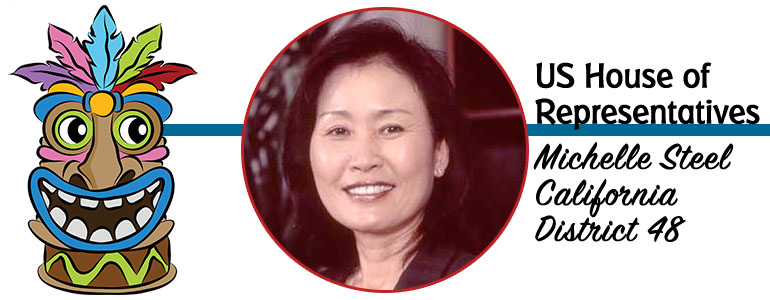
Rep. Michelle Steel (R-CA) introduced The Helping Applicants Receive Valid and Reasonable Decisions (HARVARD) Act, legislation that promotes transparency at institutions of higher education by requiring them to list their usage of personality traits in admissions decisions. Earlier this year, the U.S. Supreme Court announced it would hear arguments in Students for Fair Admissions Inc. v President & Fellows of Harvard College (consolidated with Students for Fair Admissions, Inc. v. University of North Carolina) challenging race-focused admissions policies. Student records filed in the case against Harvard in 2018 showed that Asian-American applicants were routinely rated lower than others “on traits like ‘positive personality,’ likability, courage, kindness, and being ‘widely respected.’” Though these applicants often had higher test scores and grades, their personality ratings brought down their overall admissions scores, and hurt their admissions chances.
“Every student should have the opportunity to succeed and build their own American Dream on their own merit. The use of personality traits, or discriminatory racial preferences, in admissions practices is just wrong. I’ve worked for decades to bring fairness in our education system, and this is another important step towards ensuring a level playing field for ALL students,” said Rep. Steel.
If an institution of higher education uses personality traits in their admissions process, The HARVARD Act would require the university or college to make the use of these traits public, posting on a public website and application materials.
It would require:
- A statement informing applicants of the use of personality traits in making admissions decisions;
- The rationale for such use of personality traits;
- A description of the process under which personality traits are considered, and;
- The standards and criteria used for rating personality traits.
Last year, as a member of the House Committee on Education and Labor, Rep. Steel questioned Education Secretary Miguel Cardona about these discriminatory policies. He agreed they were wrong, stating “I believe students should have an opportunity to apply and get into colleges based on their own merit.” You can view that exchange here.
Rep. Steel supported and campaigned for California’s Proposition 209 in 1996, which banned racial preferences in public hiring, education and contracting. It was modeled after the Civil Rights Act. Before Prop 209 was passed, the four-year graduation rate for underrepresented racial minorities in the University of California system was 31.3%. By 2014, that had increased to 55.1%. The six-year graduation rate is even better, increasing from 66.5% in 1998 to 75.1% in 2013. Last year in California, Democrats introduced Proposition 16 to bring back racial preferences in hiring, contracting and our education system. Californians overwhelmingly rejected it.
